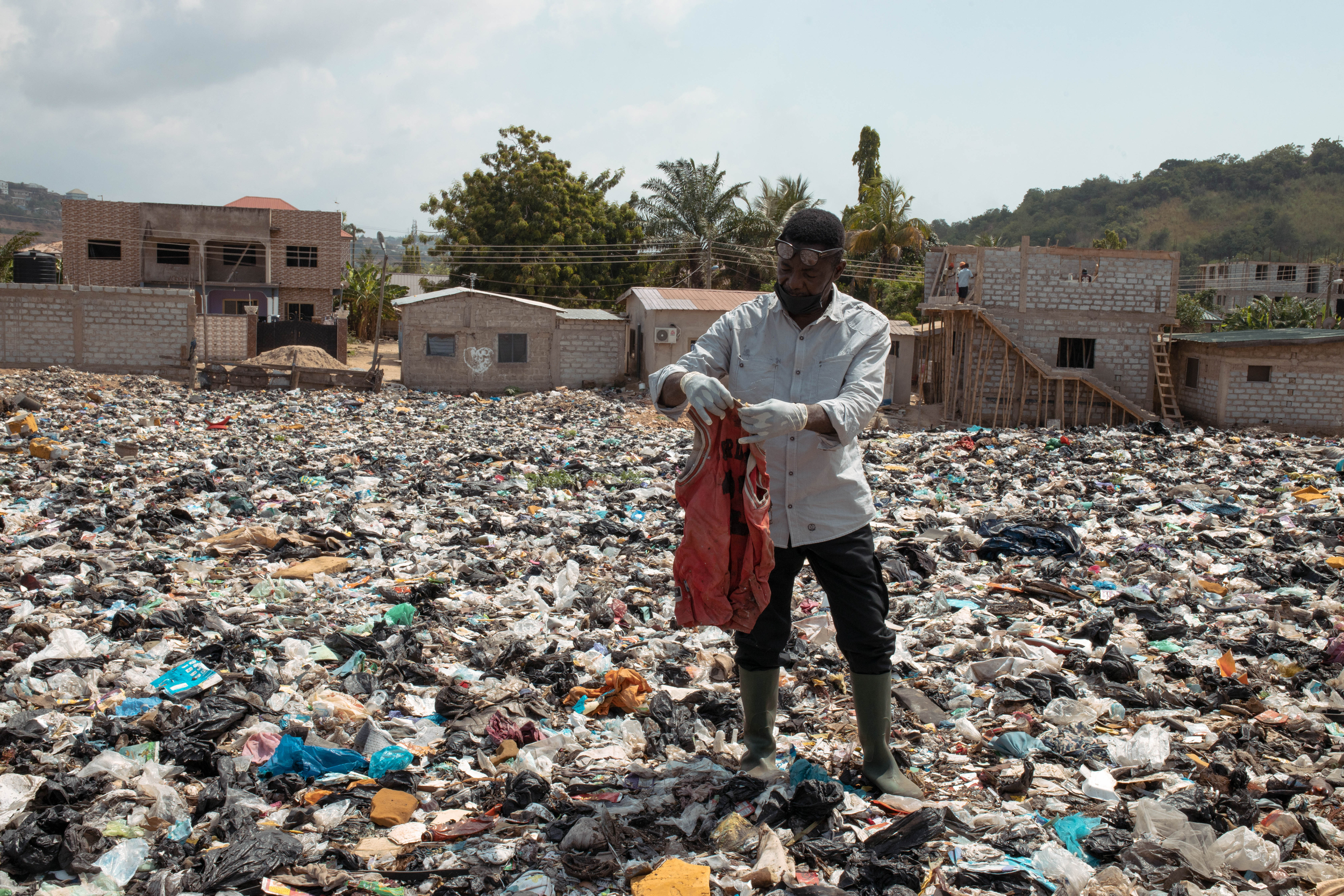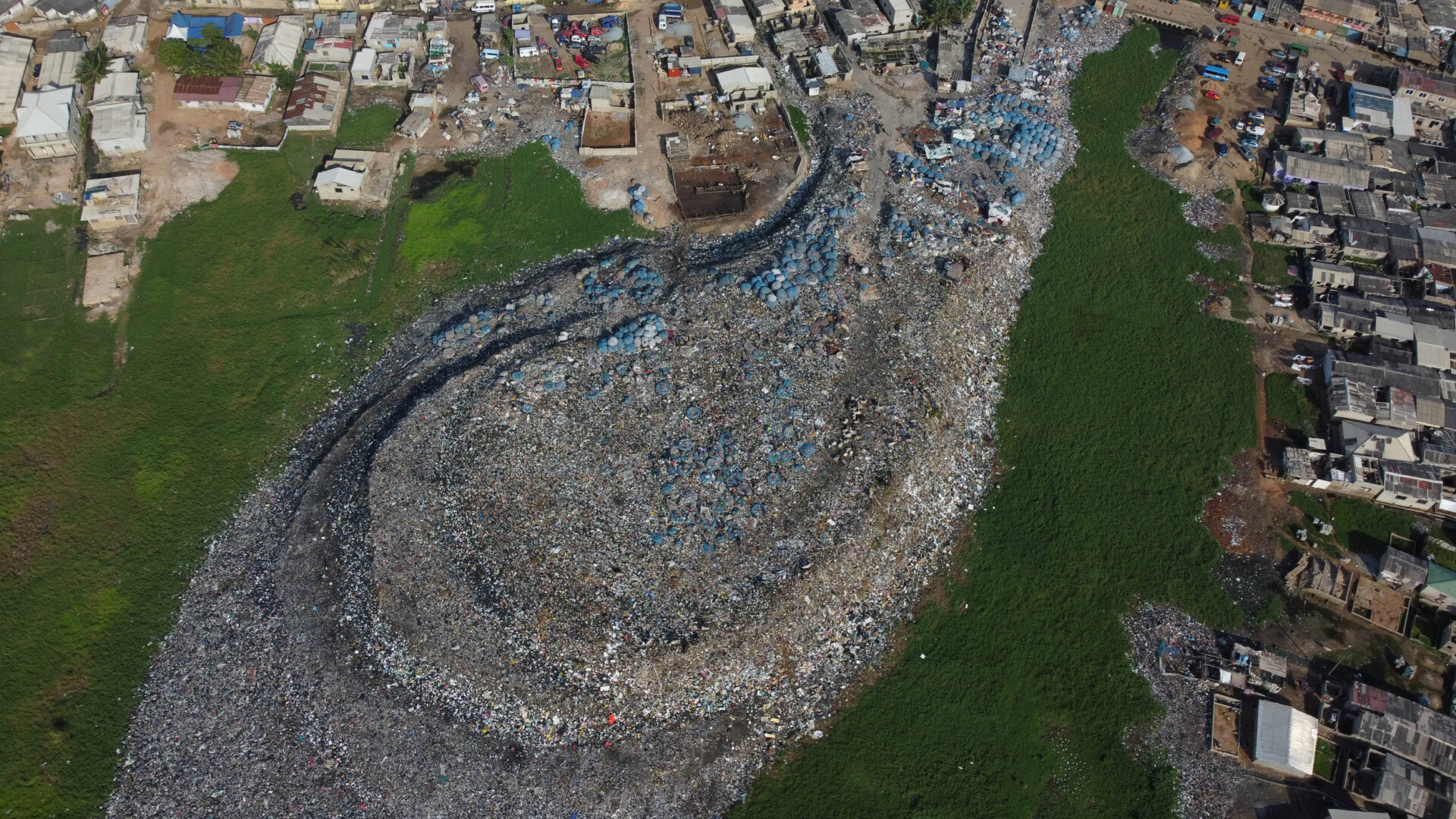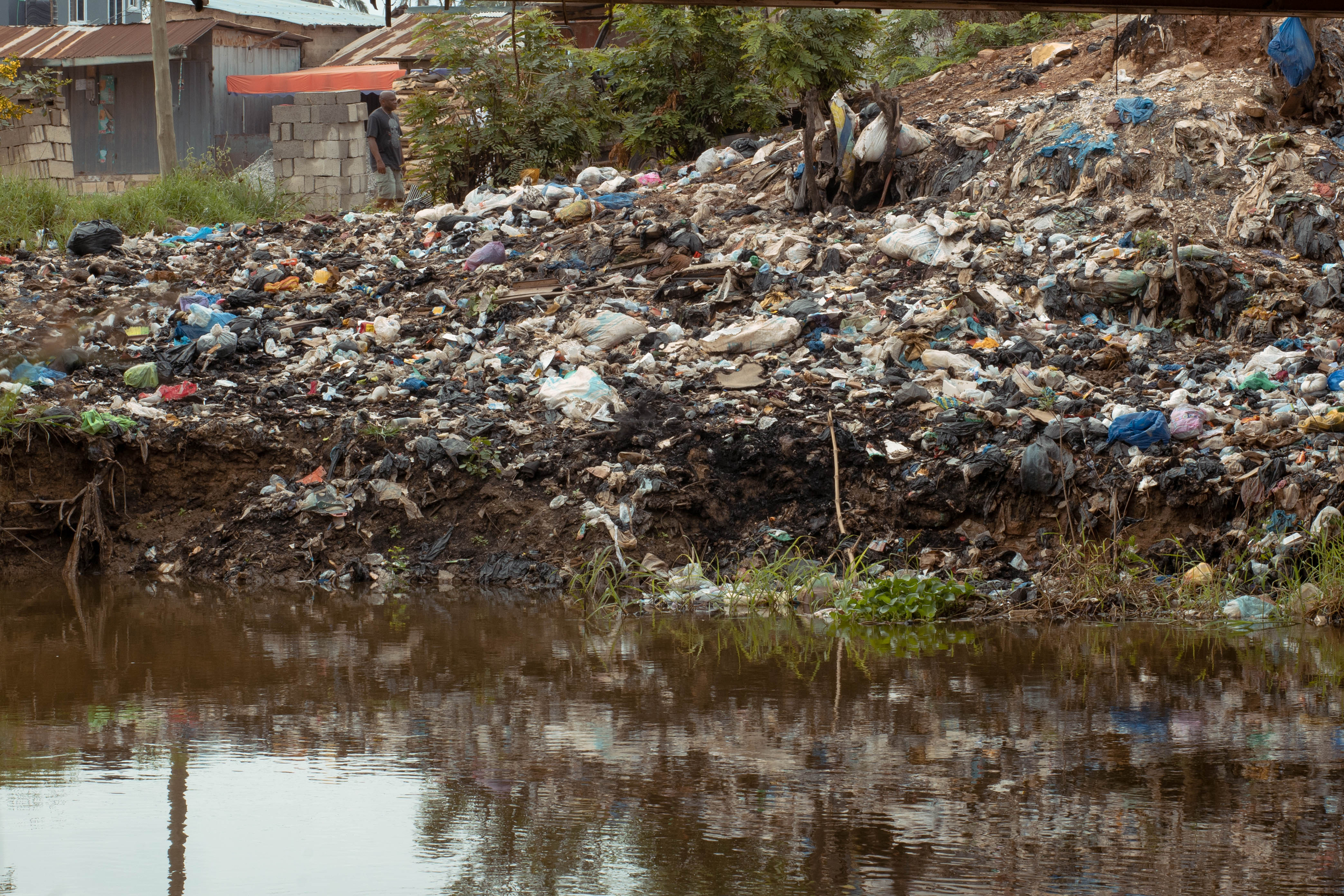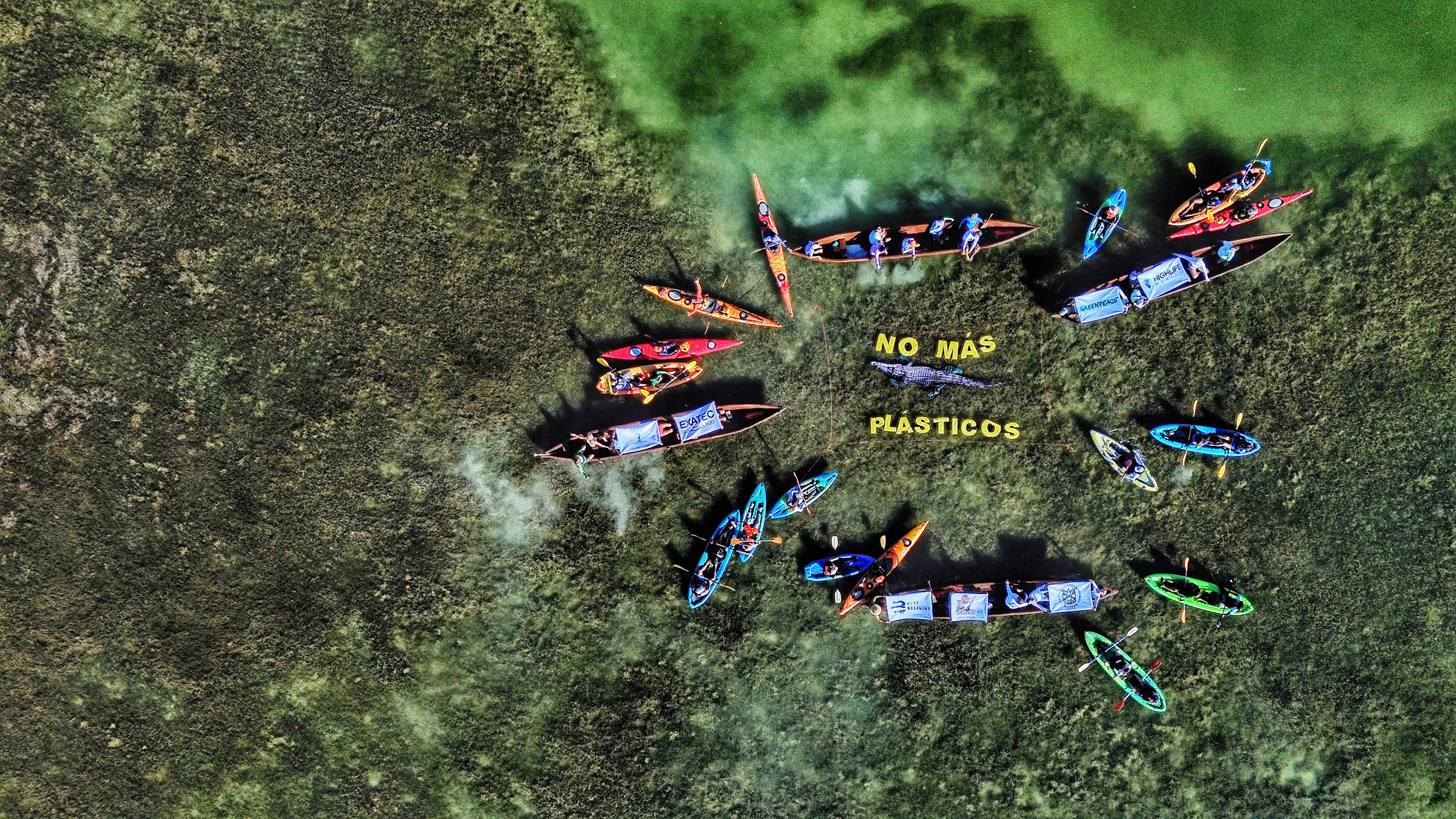
In the three minutes it’ll take to read this article, 4,464 unwanted items of clothing will be dumped in Ghana.
A shocking new investigation from Unearthed Unearthed is Greenpeace's award-winning investigative journalism unit. reveals some grim scenes: piles of discarded clothes are strewn across sandy beaches. Mounds of garments line a river flowing into a critical biodiversity area. Polyester pieces clog sea turtles’ wetland home.
And in this wreckage, you can see all the familiar names: M&S, Zara, H&M. Everyone deserves affordable clothes, but not at the cost of communities overseas or a plastic-choked planet.
From wardrobes to wetlands
15 million “throwaway” items arrive in Ghana every week – with the biggest proportion coming from the UK.
For decades, the flow of second hand clothes to Ghana provided jobs for garment traders and affordable clothing for locals. But with the rise of throwaway fast fashion, the volume of clothing has soared while the quality has plummeted. Traders report that a massive 40% of imported used clothing is unusable – torn, stained, or unsuitable for the local climate.
Ghanaians can’t wear it. Traders can’t sell it. So it gets dumped.
And with no space left in official landfill sites, new dumpsites are popping up in conservation areas, including the Densu Delta wetlands.
The wetlands are found where the Densu river meanders through mangroves, marshes and salt flats to meet the Atlantic ocean. This vital habitat supports rare birds and endangered leatherback and green turtles, which lay their eggs on the conservation area’s beach. Locals rely on the ecosystem for fishing and salt production.
But in recent years, they are finding their fishing nets and waterways clogged with synthetic fast fashion, and it’s harming their livelihoods and the environment.

Read the full story
You can read the full story direct from Unearthed’s investigative journalists, with support from Greenpeace Africa, on the Unearthed website.
The fast fashion problem – and how we can fix it
People in the UK are Europe’s biggest consumers of fast fashion, buying over 26 kilos of clothing each year. That’s nearly double the amount bought by Germans, who rank second.
These clothes are often largely made from plastic and break down over centuries into microplastics: polluting the air, water, food, and people’s bodies.
But there’s hope: governments are working on a Global Plastics Treaty, which could force countries and companies to produce much less throwaway plastic. A strong treaty could be our greatest ally in the fight against destructive, irresponsible fast fashion.
Even if you’re trying your best to buy less, the truth is this: our personal shopping choices can’t tackle this multi-billion pound industry. We need to tackle the problem at the source.
A Global Plastics Treaty would mean every government would have to reduce their plastic, and be accountable for their country’s plastic waste.
Finally, we could limit clothes manufacturers’ destruction, and put an end to horrifying scenes like the ones we found in Ghana.
Turning the tide on plastic can feel like a daunting task. But campaigns like this can and do change the world. Our movement won a game-changing treaty to protect our oceans in 2023 – and we can do it again.
Will you fight fast fashion and plastic pollution with us, by demanding a strong Global Plastics Treaty?


